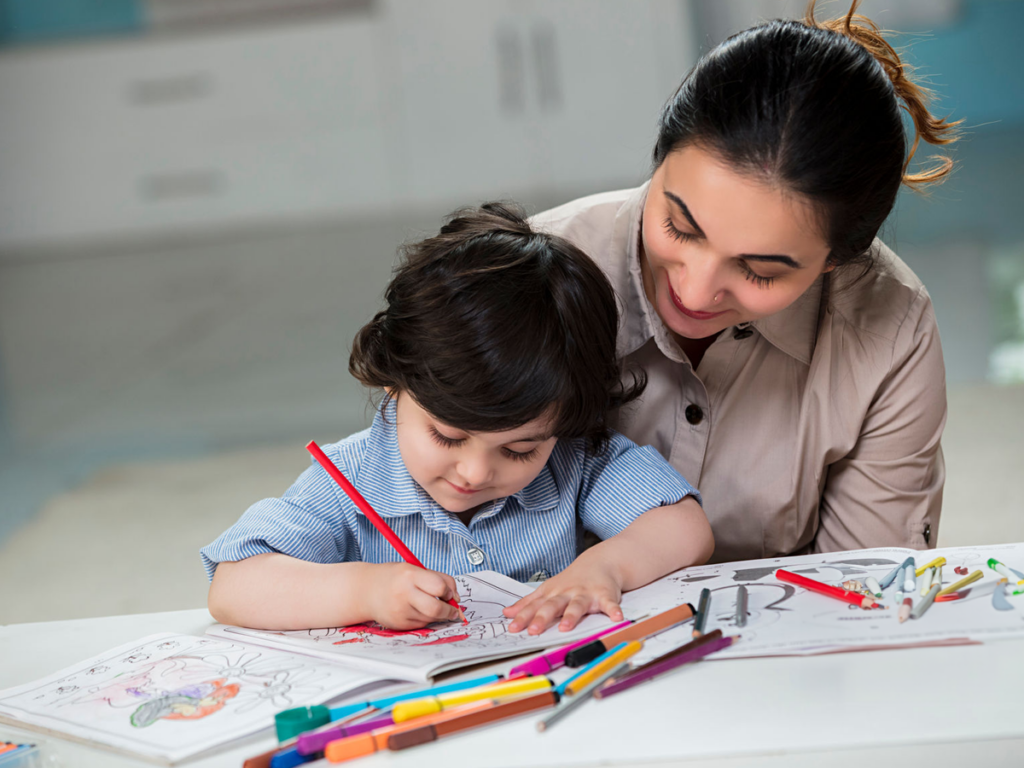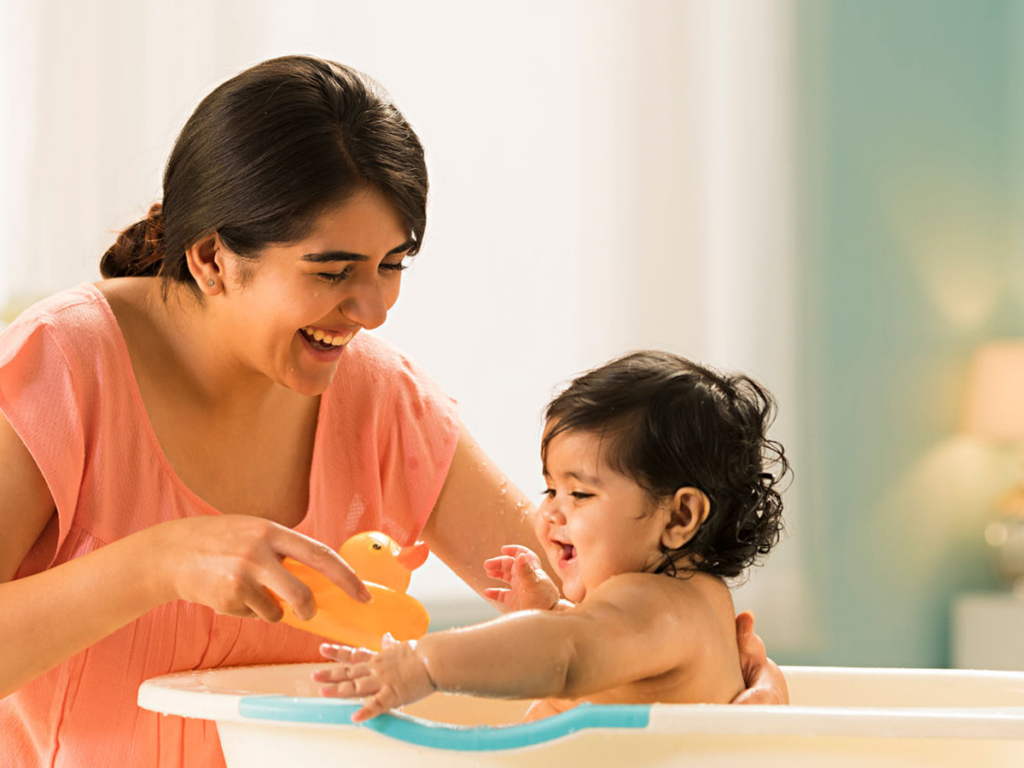YOUR CART
- No products in the cart.
Subtotal:
₹0.00

Parenting is one of the most rewarding and challenging roles you’ll ever take on. Whether you’re a new parent or someone with years of experience, every stage of your child’s growth brings its own set of joys and struggles.
Parenting in India often blends tradition with modern approaches, balancing the importance of family values with the need for independence. If you’re navigating this journey, you’ll likely be striving for a parenting style that builds your child’s character, encourages independence, and instils a sense of responsibility.
In this article, we’ll explore six essential characteristics of a good parenting style, with practical tips to guide you every step of the way. Read along!
In India, there’s a noticeable difference in how children are raised compared to countries in the West. Some pointers that highlight this difference are:
In parenting in India, the focus is often on the family unit. Parents teach their children the importance of family bonds, respect for elders, and community. Children are raised with the understanding that their decisions affect the family as a whole.
On the other hand, in Western countries, parenting tends to prioritise individualism. Children are encouraged to be independent, make their own decisions, and pursue personal goals without as much consideration for family obligations.

Parenting in India emphasises discipline from an early age. They believe in instilling respect for authority, often maintaining stricter rules and expectations. Children are expected to be obedient and follow instructions without question.
In contrast, parenting in Western countries tends to focus more on nurturing social skills and emotional intelligence. Parents often encourage open communication, allowing children to express themselves and learn from their mistakes.
Parenting in India means that the career paths are often decided by parents. There’s a strong emphasis on high-paying and prestigious careers, like medicine or engineering, even if it doesn’t align with the child’s interests. Parents feel responsible for guiding their children’s future choices.
In the West, children typically have more freedom to choose their careers based on their passions and interests, with parents offering support rather than making decisions for them.
Parenting in India still leans toward traditional gender roles. Boys are generally encouraged to excel academically and pursue careers, while girls may be guided toward homemaking or more “traditional” roles, although this is gradually changing.
Western parents tend to promote gender equality, encouraging both boys and girls to pursue any career or interest without limitations based on gender.
Parenting in India means that the communication between parents and children is often formal and authoritative. Parents are seen as figures of authority, and children are expected to show respect and listen attentively.
Western parenting places more emphasis on open, two-way communication. Parents encourage children to voice their opinions and listen actively to their thoughts and feelings.
As parents, the approach you have towards your kids shapes their emotional, social, and cognitive development. To guide you through this, here are 6 key characteristics of good parenting that will not only benefit your child but also help you feel more confident in your parenting choices.
Parenting in India requires patience more than anything. There will be times when your child tests your limits or struggles with new challenges. These moments can be frustrating, but being patient during these phases will help them process their emotions and actions.
Pro Tip: In moments of stress, take a brief pause. Step back, breathe, and focus on understanding your child’s perspective. Responding with calmness, rather than frustration, not only helps resolve conflicts but also models emotional regulation for your child.
Children face many hurdles in life, and your role as a parent is to be their biggest supporter. Being supportive means offering encouragement when things get tough and celebrating their achievements, no matter how small.
When children know they can count on you, they feel more secure in their abilities to face challenges on their own.
Pro Tip: Actively listen to your child, even when they’re facing struggles you may not fully understand. When they see that you’re invested in their feelings, they’ll feel more confident reaching out to you during tough times.

Consistency is about having clear and predictable rules, behaviours, and routines that provide your child with a sense of security. Plus, when you’re consistent in your actions and decisions, your child learns the importance of responsibility and accountability.
They also start to understand that their actions have consequences, which builds discipline and a sense of safety.
Pro Tip: Keep routines simple and stick to them. For example, if you say “no TV before homework,” follow through every time. This consistency helps your child develop good habits and minimises power struggles.
Love and affection are not just about physical touch (though that’s important too), but about giving your child emotional warmth and support. Expressing love creates a strong emotional bond that boosts your child’s self-esteem and emotional well-being.
When children feel unconditionally loved, they are more likely to develop healthy relationships and have a positive self-image.
Pro Tip: Be present and attentive. Engage in small but meaningful interactions like eye contact, asking about their day, or giving them a quick hug when they need it. Basically, simple gestures go a long way in showing love and building a strong emotional connection.

While love and patience are essential, firmness ensures your child understands that certain behaviours are not acceptable. Being firm isn’t about being harsh; it’s about being clear and consistent with your expectations and sticking to them.
When you set clear boundaries, your child learns that rules are not negotiable. It also helps them build respect for authority and understand the importance of self-control.
Pro Tip: Set expectations clearly and communicate the consequences for breaking rules. For example, if you set a rule about screen time, make sure the consequences are consistently applied when the rule is broken.
Children mimic what they see, not what they hear. By showing good behaviour, you’re directly teaching them how to act. When you practise what you preach, your child learns that values like honesty, respect, and responsibility are not just words, but actions.
Pro Tip: Reflect on your actions and words regularly. If you want your child to speak kindly to others, make sure you are doing the same. Children are great observers, and when they see you handle challenges with patience and kindness, they are more likely to do the same.
Parenting is not about being perfect; it’s about finding balance and striving to be the best guide for your child. When you consistently show patience, support, love, and firmness, while modelling positive behaviour, you’re equipping your child with the emotional and practical tools they need to navigate the world confidently.
The foundation you set now will have a lasting impact on their growth and character development. Also, keep in mind, every small action you take—whether it’s a moment of support or a firm boundary—contributes to shaping a future filled with strong, compassionate, and resilient individuals.
Finally, stay committed, and trust that the effort you put in today will pay off tomorrow.
Second Hugs is a marketplace where you can buy or sell preloved and new kids’ products, promoting sustainability and ease for parents. With hassle-free selling, door-step pickup, and a secure payment system, we make parenting more economical and eco-friendly. At Second Hugs, we understand the challenges of parenting and are here to support you every step of the way. Every small effort, like choosing sustainable options, contributes to raising confident and compassionate children. Trust yourself, cherish the little moments, and join a community that values quality, sustainability, and the joys of parenting.
How to Buy Second-Hand Baby Gear Safely & Smartly
29 Mar, 2025How to Choose a Safe & Sturdy Second-Hand Baby Cot
22 Mar, 2025How to Buy Second-Hand Baby Gear Safely & Smartly
29 Mar, 2025How to Choose a Safe & Sturdy Second-Hand Baby Cot
22 Mar, 2025